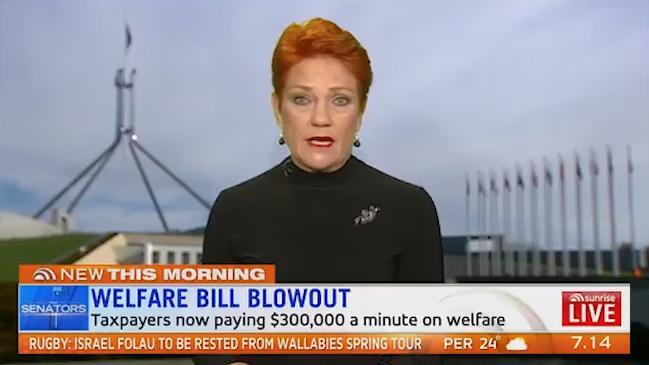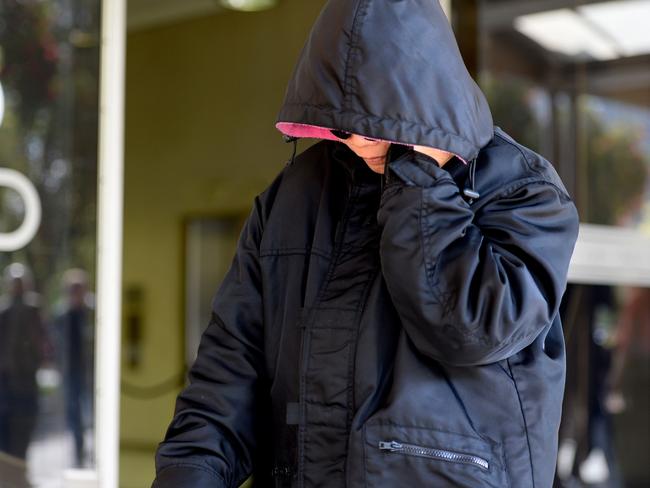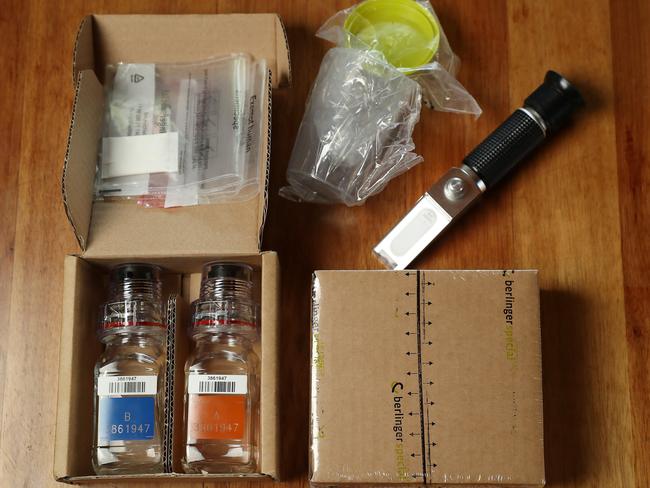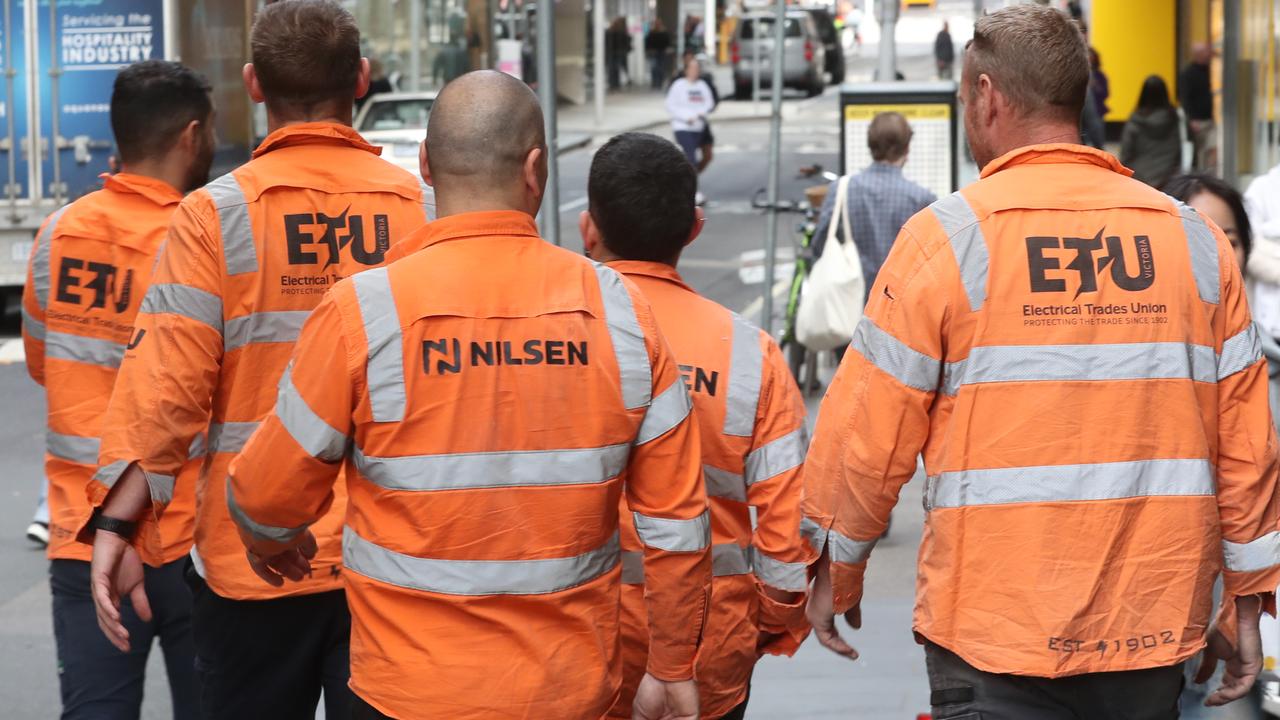Nation of dobbers: What’s wrong with Aussies spying on their neighbours
WE are snitching on our suspected welfare cheat neighbours more than ever before, but the crackdown culture isn’t doing much to lower our taxes.

AUSTRALIA is a nation of increasingly enthusiastic dobbers, with the number of welfare fraud tip-offs skyrocketing to more than 100,000 in 2016-17.
The record number of reports has enabled the Government to raise more than $40 million in debts, which it estimates equates to a $1.4 million fortnightly saving for taxpayers.
But there’s a problem with this data.
Of the 108,798 reports made on family members, friends and neighbours, just 118 have directly resulted in a referral to the Director of Public Prosecutions.
“So you’re getting a lot of tips, but not converting a whole heap — that’s probably a statistic under one per cent,” radio host Oliver Peterson put to Human Services Minister Alan Tudge on 6PR Drive WA yesterday afternoon.

The minister said some of the debts may have been incurred by accident and could be recovered without going to a prosecutor.
“It only goes for a person to be prosecuted when there is sufficient evidence that a person deliberately set out to cheat the system — i.e. they’re properly committing fraud — and that’s when we’d get the DPP involved and they get prosecuted,” he said.
Other tip-offs refer to an investigation that is already under way, with the department typically receiving multiple tip-offs about the same case.
The other big issue with the figures is that while $40 million in debts may have been “raised”, that does not mean anywhere near that sum has been, or ever will be, returned. A debt may be challenged, or a person may be unable to repay what they owe.
Welfare tip-offs received by year (by phone, email and online)
2013-14 | 99,106 |
2014-15 | 103,803 |
2015-16 | 106,633 |
2016-17 | 108,798 |
IS OUR SNITCHING PAYING OFF?
Welfare in Australia is a $174 billion a year system, so $40 million is a drop in the ocean. The Department of Human Services’ focus on finding “welfare cheats” who deliberately defraud the taxpayer is not necessarily the solution to lowering our tax bill.
This was highlighted earlier this year by the Centrelink “robo-debt” scandal, which had thousands of honest Australians accused of defrauding the system and threatened with debt collectors. Many were disabled pensioners or struggling with mental health issues.
Most did not owe the debts highlighted in letters sent to their homes and could avoid further action by updating their details online. But some never received the letters from Centrelink because they had changed address, and instead the first they heard about it was from debt collection agencies.
In a number of cases, it was suggested that they begin paying back the debt immediately to prevent further action, even if they did not believe they owed money and wanted to challenge the debt.
“We are putting more effort into cracking down on welfare fraud than ever before because nothing annoys the taxpayer more than others ripping them off,” said Mr Tudge upon the release of the dobbing data yesterday. “Tip-offs have become a very important source of information which helps us discover fraud and ensure people who commit it are caught and prosecuted where appropriate.”

AUSTRALIA’S BIGGEST DOBBERS
People living in New South Wales are the nation’s biggest dobbers, making 31,041 reports on suspected dole bludgers in 2016-17 — but the number has stayed relatively stable in the past three years. Queenslanders came in next with 25,487 tip-offs and a rise of 14 per cent, while Victoria was third on 21,471, up five per cent.
Most cases of verified welfare fraud involve people either not declaring, or dishonestly declaring, their circumstances to receive welfare benefits. Typically, neighbours or family members will report people they believe are not declaring their real income or the status of a relationship.
Cases successfully prosecuted included a 37-year-old man using a false identity to fraudulently claim over $100,000 in welfare payments, and a 40-year-old man who had fraudulently claimed more than $200,000.
Encouraging reporting is not the only way the Government is trying to crack down on welfare payments. The Turnbull administration is rolling out a trial to drug-test recipients in three locations, including Bankstown in NSW and Logan in Queensland.
Centrelink users in western Sydney criticised the scheme as “unfair” and “unhelpful” when it was announced in August.
It is scheduled to start from January 1, but the Senate will need to pass a piece of legislation first.
Welfare tip-offs received by state
| STATE | 2014-15 | 2015-16 | 2016-17 |
ACT | 770 | 911 | 939 |
New South Wales | 30,148 | 31,077 | 31,041 |
Northern Territory | 685 | 861 | 1,257 |
| Queensland | 22,920 | 24,261 | 25,487 |
South Australia | 7,566 | 7,661 | 8,097 |
| Tasmania | 3,217 | 3,028 | 3,228 |
| Victoria | 20,463 | 21,216 | 21,471 |
Western Australia | 7,121 | 7,644 | 8,189 |
Other / Unknown | 10,913 | 9,974 | 9,089 |
| TOTAL | 103,803 | 106,633 | 108,798 |
If you suspect someone is committing welfare fraud you can report it via the Reporting Fraud web page at humanservices.gov.au/fraud or by calling the Fraud Tip-Off Line on 131 524.
Leave a comment below, share your story with emma.reynolds@news.com.au or tweet @emmareyn.




